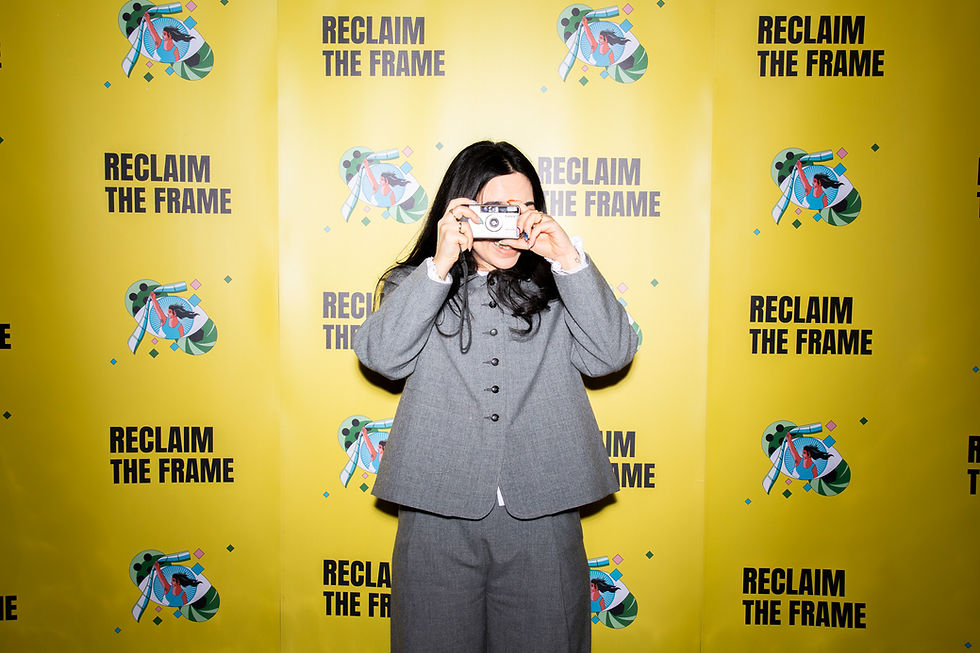Why Change Your Wife? 1920s Classic + Live Jazz score
- Mar 26, 2014
- 4 min read
[blank_spacer height=”30px” width=”1/1″ el_position=”first last”] [spb_text_block title=”Why Change Your Wife? + live jazz score by Niki King” pb_margin_bottom=”no” pb_border_bottom=”no” width=”1/1″ el_position=”first last”]
Director: Cecil B. DeMille Country: USA Runtime: 90 min Venue: BFI Date: Thu 10th April, 2014 Time: 6:10pm
[sf_button colour=”black” type=”standard” size=”large” link=”https://whatson.bfi.org.uk/Online/default.asp?doWork::WScontent::loadArticle=Load&BOparam::WScontent::loadArticle::article_id=DFA1B86A-64B8-40D9-85D9-D2B6F2AB2436&BOparam::WScontent::loadArticle::context_id=D99C3833-076F-4472-969E-D8D46F8D5E59″ target=”_blank” icon=”ss-star” dropshadow=”yes” extraclass=””]BOOK TICKETS[/sf_button]
[/spb_text_block] [blank_spacer height=”30px” width=”1/1″ el_position=”first last”] [spb_text_block pb_margin_bottom=”no” pb_border_bottom=”no” width=”1/1″ el_position=”first last”]
Released in 1920, Why Change Your Wife? was one of half a dozen ‘marriage films’ directed by Cecil B. DeMille during the silent era – following on from such titles as Don’t Change Your Husband and For Better, For Worse – and the fourth DeMille production to star Gloria Swanson. A mere 21-years-old, her radiantly self-assured and versatile performance really makes this battle of the sexes comedy pop.
[/spb_text_block] [blank_spacer height=”30px” width=”1/1″ el_position=”first last”] [spb_single_image image=”8796″ image_size=”full” frame=”noframe” intro_animation=”none” full_width=”no” lightbox=”yes” link_target=”_self” width=”1/1″ el_position=”first last”] [spb_text_block pb_margin_bottom=”no” pb_border_bottom=”no” width=”1/1″ el_position=”first last”]
The bare bones of the narrative are Rom Com 101. A married couple are drifting apart. He rekindles an old flame. She files for divorce. He remarries. She regrets her decision and sets about winning him back. The devil is in the details, established at pace and played for copious laughs. At the movie’s outset, Beth and Robert Gordon (Swanson and Thomas Meighan, whose curly hair provides a running joke) are trapped in a stale union. They don’t have much in common. Beth’s a sober homebody whose choice of bedtime reading is a hefty tome entitled How To Improve The Mind. Robert drinks and smokes and owns a rambunctious dog, all to his other half’s chagrin. He enjoys going out to modish night spots. She dismisses his foxtrot records as ‘that awful, physical music’, preferring to stay in and listen to the highbrow classical stylings of a solemn violinist (who also happens to sport a head of curls, enabling further intrigue).
[/spb_text_block] [blank_spacer height=”30px” width=”1/1″ el_position=”first last”] [spb_text_block pb_margin_bottom=”no” pb_border_bottom=”no” width=”1/1″ el_position=”first last”]
In a misguided attempt to reignite the spark, Robert buys her ornate lingerie, catching the eye of shopgirl Sally (Bebe Daniels), who remembers him from childhood and is described via verbose title card as ‘legally a widow and optically a pippin’. Beth decries the negligee and then turns down his tickets to a supper club. He takes Sally instead and comes home smelling of foreign perfume. Cue fireworks! While she makes for a remarkably convincing frump, Swanson is electrifying as the wronged spouse decrying another woman’s kisses on her partner’s lips.
[/spb_text_block] [blank_spacer height=”30px” width=”1/1″ el_position=”first last”] [spb_text_block pb_margin_bottom=”no” pb_border_bottom=”no” width=”1/1″ el_position=”first last”]
From here the plot has more twists than a pretzel. Robert’s remarried bliss proves short-lived, Sally being prone to childishness and a broadly sketched superficiality – the game Daniels does her best to animate a two-dimensional character. Meanwhile, the freshly divorced Beth overhears changing room gossip about her dressing like “his aunt not his wife” and resolves to fight back with style. Our heroine flings off her dowdy garb in favour of more fashionable gowns: “Make them sleeveless, backless, transparent, indecent – go the limit.”
[/spb_text_block] [blank_spacer height=”30px” width=”1/1″ el_position=”first last”] [spb_text_block pb_margin_bottom=”no” pb_border_bottom=”no” width=”1/1″ el_position=”first last”]
These exotic costumes were designed by Natacha Rambova (soon to be the subject of offscreen scandal with matinée idol Rudolph Valentino), whose creativity is further showcased by a set-piece holiday resort scene reuniting the protagonists. Swanson and Daniels revel in flamboyant bathing suits which were doubtless risqué for the time, while the filmmakers’ open discourse on the supposed rules of attraction reminds you that the stifling censorship of the Hays Production was still a decade away.
[/spb_text_block] [blank_spacer height=”30px” width=”1/1″ el_position=”first last”] [spb_single_image image=”8797″ image_size=”full” frame=”noframe” intro_animation=”none” full_width=”no” lightbox=”yes” link_target=”_self” width=”1/1″ el_position=”first last”] [blank_spacer height=”30px” width=”1/1″ el_position=”first last”] [spb_text_block pb_margin_bottom=”no” pb_border_bottom=”no” width=”1/1″ el_position=”first last”]
Reportedly the uncredited work of trailblazing screenwriter Jeanie MacPherson, the mind-boggling intertitles are flush with pearls of worldly wisdom: ‘Marriage, like genius, is an infinite capacity for taking pains.’; ‘Matrimony, like a dip in the sea, first stimulates, then chills. But once out of the water the call of the ocean lures the bather to another plunge.’; ‘When a woman meets her ex-husband she realizes all she has lost. When she meets his wife she realizes all he has lost.’
[/spb_text_block] [blank_spacer height=”30px” width=”1/1″ el_position=”first last”] [spb_text_block pb_margin_bottom=”no” pb_border_bottom=”no” width=”1/1″ el_position=”first last”]
Coloured by period chauvinism but lined with equal opportunities venom – ‘the more I see of men the better I like dogs’ – the frequency of these florid observations adds another layer to a story that climaxes in surprisingly violent fashion. Swanson and Daniels attack their roles (and each other) with relish, while the ineffectual man at the centre is literally reduced to a helpless bystander. Connoisseurs of camp contrivance are in for a treat.
[/spb_text_block] [blank_spacer height=”30px” width=”1/1″ el_position=”first last”] [spb_text_block pb_margin_bottom=”no” pb_border_bottom=”no” width=”1/1″ el_position=”first last”]
Why Change Your Wife? will be presented at BEV 2014 with a live bespoke score performed by Niki King. An erstwhile Perrier Jazz Vocalist of the Year award winner most recently heard on the acclaimed 2011 album It’s All Good, her poised grooves provide the perfect complement to its overheated hilarity.
[/spb_text_block] [blank_spacer height=”30px” width=”1/1″ el_position=”first last”] [spb_video title=”Watch Trailer here” link=”http://www.youtube.com/watch?v=A7REvdOzsWg” full_width=”no” width=”1/1″ el_position=”first last”] [blank_spacer height=”30px” width=”1/1″ el_position=”first last”] [spb_text_block title=”Written by Manish Agarwal” pb_margin_bottom=”no” pb_border_bottom=”no” width=”1/1″ el_position=”first last”]
.
[/spb_text_block] [blank_spacer height=”30px” width=”1/1″ el_position=”first last”]


